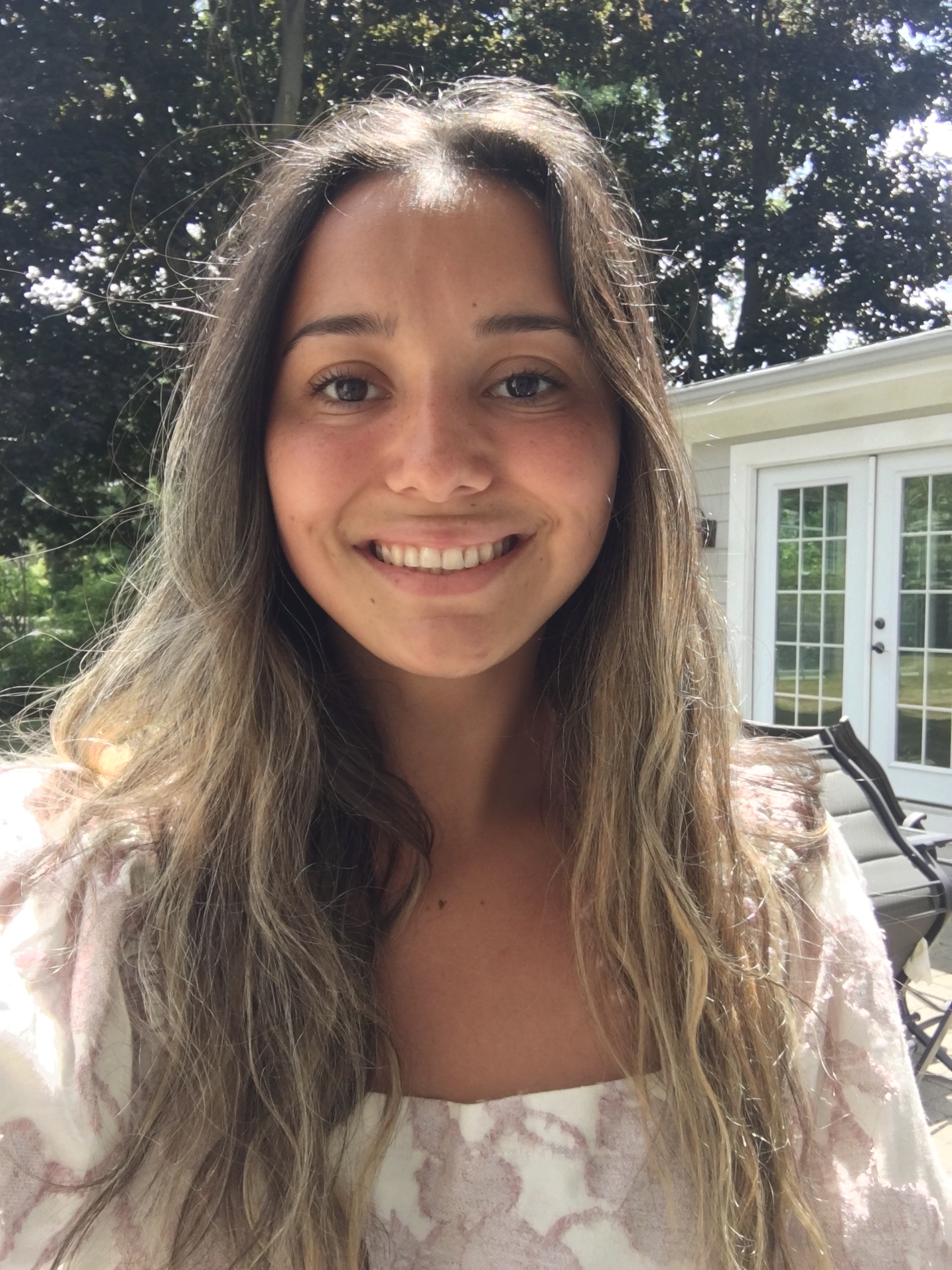Congratulations to our lab’s undergraduate students Jessie Greatorex and Teresa Girard for their presentations at UURAF!
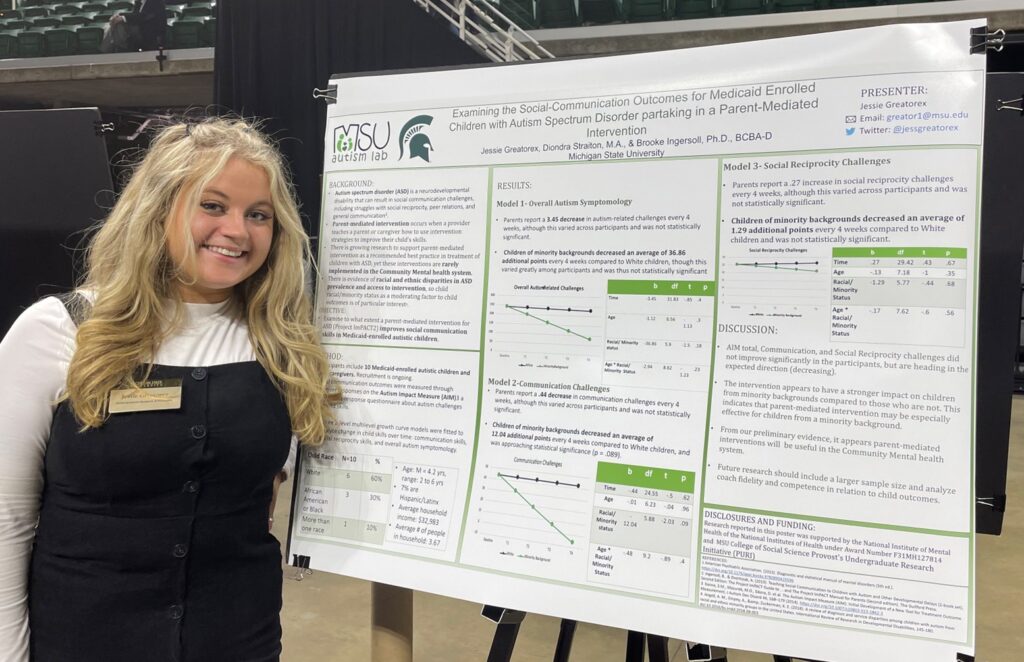
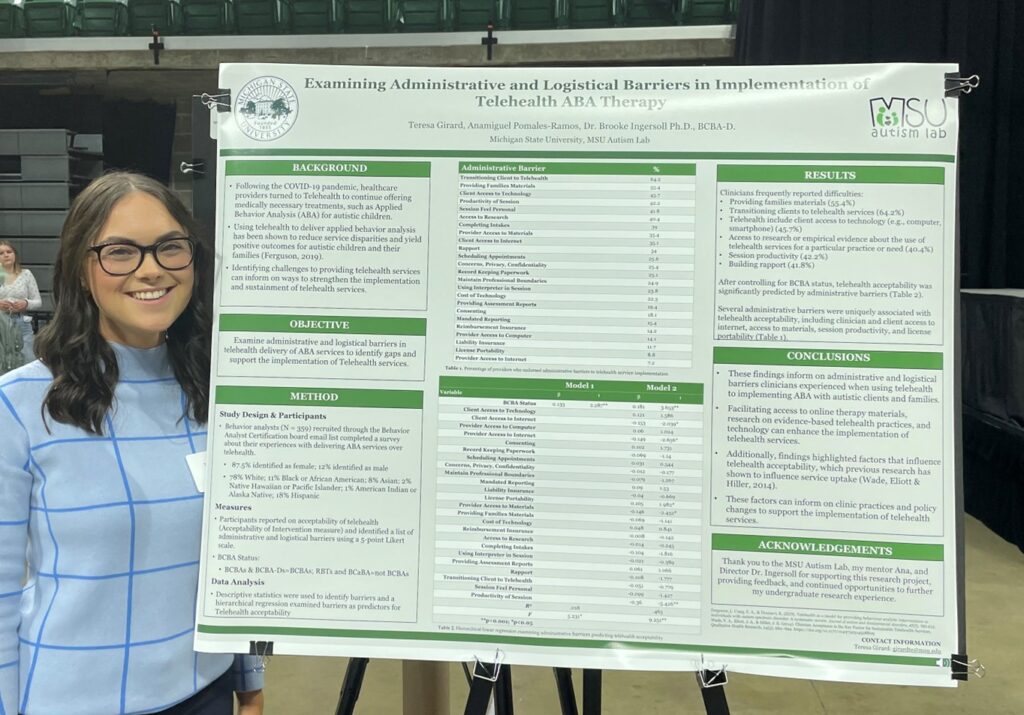

Studying early social communication intervention and supporting families
Congratulations to our lab’s undergraduate students Jessie Greatorex and Teresa Girard for their presentations at UURAF!


Congratulations to Julia Nauman, the MSU Autism Lab’s Lab Manager, for receiving an Autistic Researcher Award from INSAR. Last year Julia won the Student and Trainee Award from INSAR and presented at INSAR’s 2021 virtual research conference.
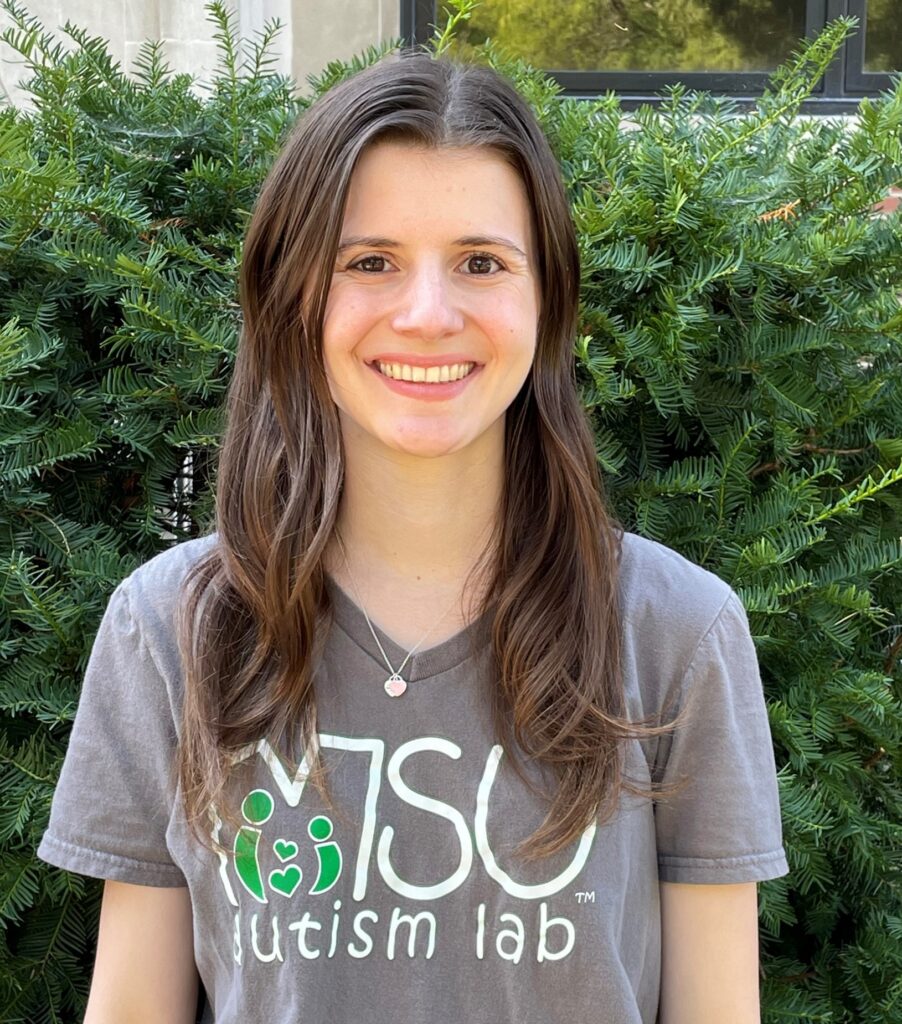
You can view and download Julia’s 2022 Research Poster and Abstract entitled “Examining the Role of Attention Problems in Motor Stereotypy in Children with ASD” here.
During INSAR’s May 2021 virtual conference, Julia gave a presentation entitled “Examining the Relationship between Stereotypy and Attentional Problems and Diagnoses in Individuals with ASD”.
If you are an INSAR member, you can check out Julia’s abstract, as well as the other abstracts from the INSAR 2021 Virtual Annual Meeting here: https://www.autism-insar.org/general/custom.asp?page=2021AnnMtg
Congratulations to MSU Autism Lab members Karís and Diondra who presented a talk called “Family Training under the Michigan Medicaid Autism Benefit: Understanding provider and caregiver perspectives on engagement.” This was a mixed methods project that explored perspectives on parent training within the Michigan Medicaid Autism Benefit, which provides ABA services to Medicaid-enrolled children with ASD. They used data from Medicaid billing claims for 879 children, surveys from 97 providers and 226 caregivers, and interviews with 13 providers and 20 caregivers.
Providers expressed high perceived family-level barriers, while caregivers reported relatively few barriers and high motivation to participate. Their findings support efforts to increase the use of evidence-based family training strategies for children with ASD through more structured and comprehensive approaches that support best practices in engaging and collaborating with parents.
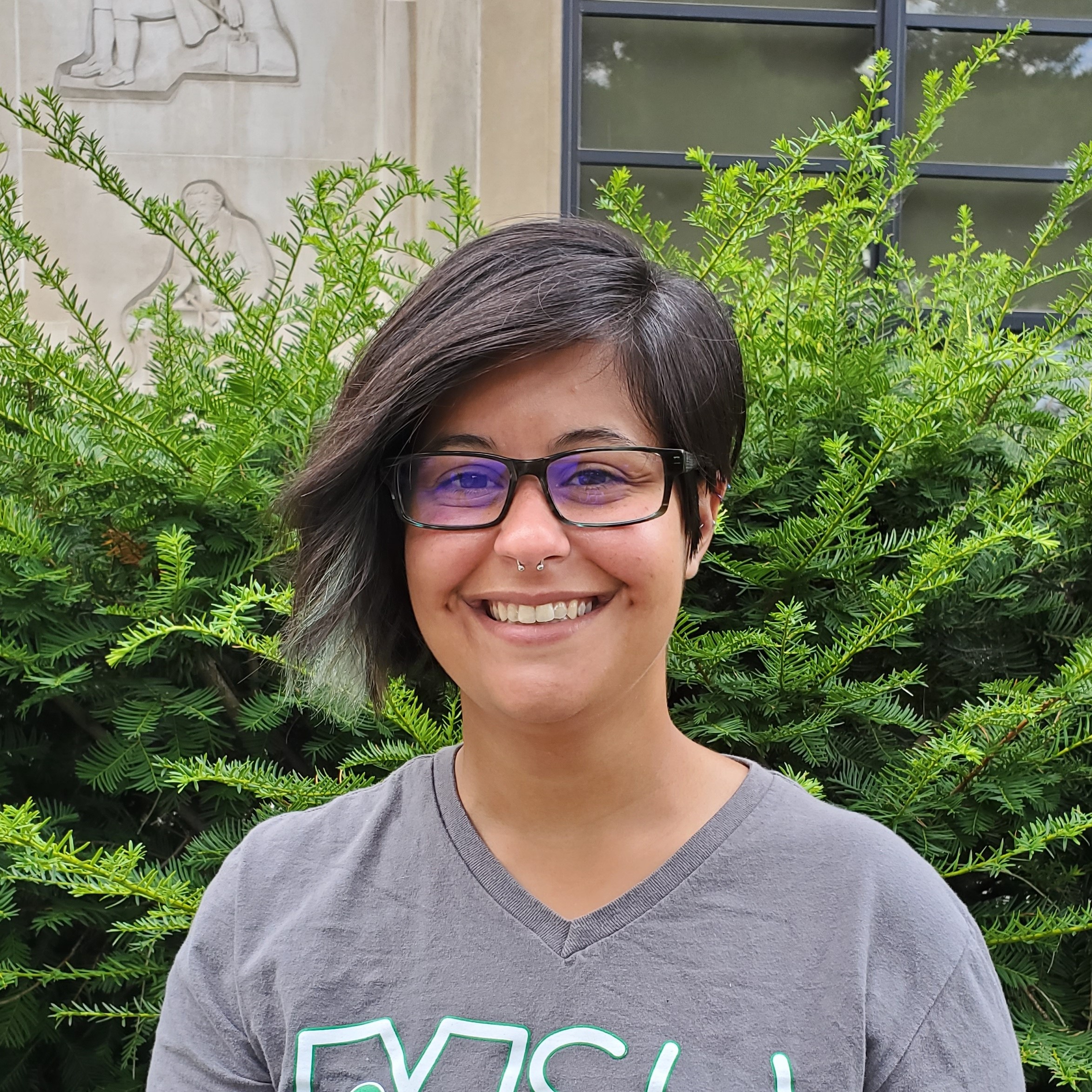
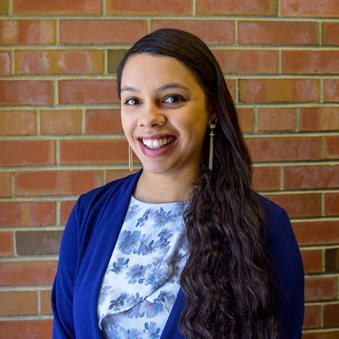
Congratulations to two of our undergraduate research assistants, Brynn and Alyssa, who presented their posters at the 3rd Annual Michigan Health Psychology Symposium!
Byrnn’s poster explored if and how attitudes towards telehealth changed at two time points over a three-month period. The project specifically surveyed students and clinic leaders in psychology training clinics. While results found that there was no significant change in attitudes overall, students and leaders found telehealth as feasible, acceptable, and appropriate at both wave one and wave two survey.
Alyssa’s poster observed how Parent-Implemented Naturalistic Developmental Interventions (PI-NDBIs) differentially affect language growth of children depending on Medically Underserved Area Status. The project observed data from children with ASD in a Randomized Controlled Trial of Project ImPACT delivered via telehealth services. Although the data was not statistically significant, the trend in language growth of estimated marginal means indicated the coaching group had larger language growth over time. As well as that, children in medically underserved areas had less language growth than children not in those areas. Additional support for children receiving these interventions may be warranted in the future (e.g. homework reminders, spending time problem-solving, working through logistical barriers).
